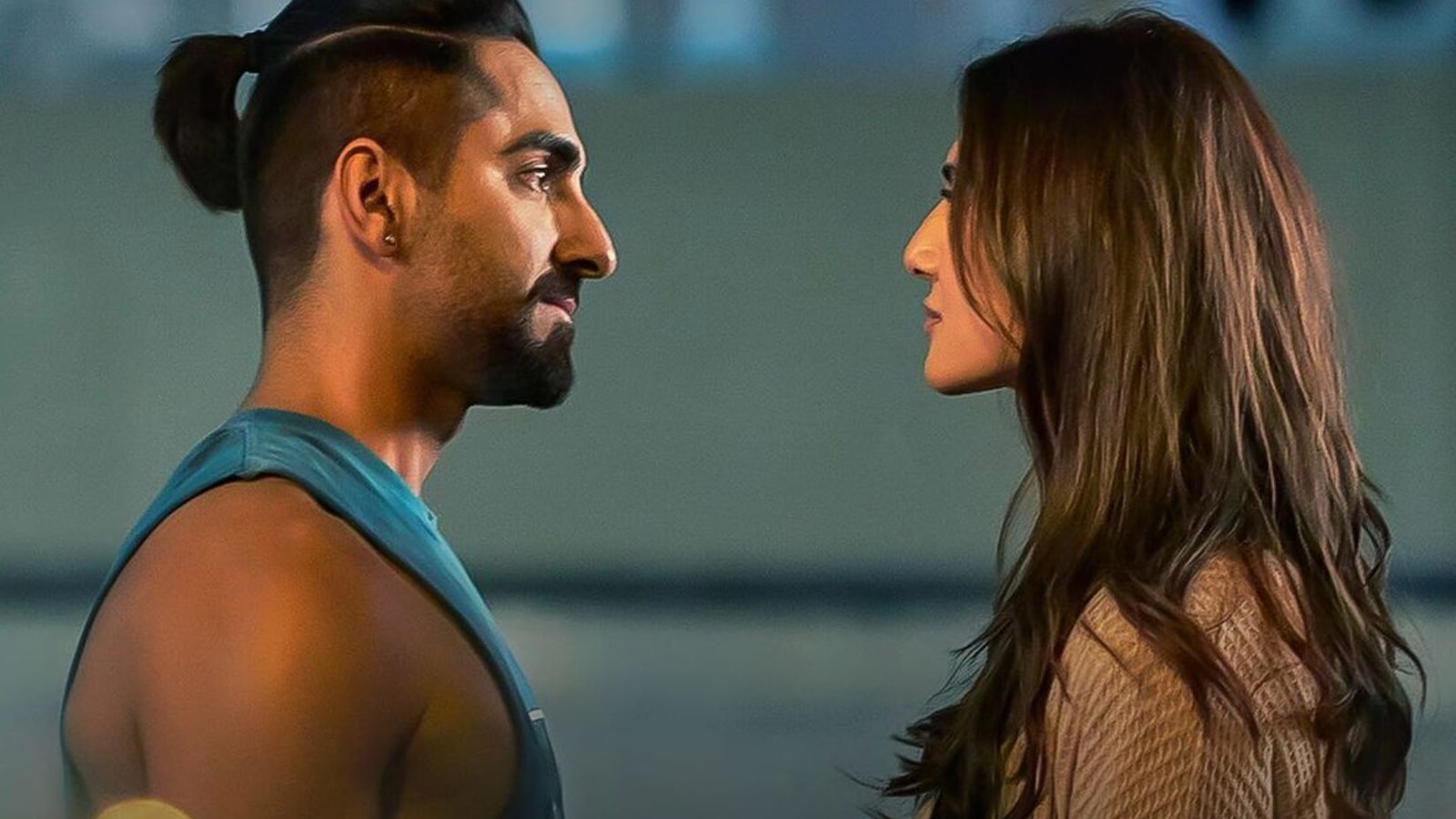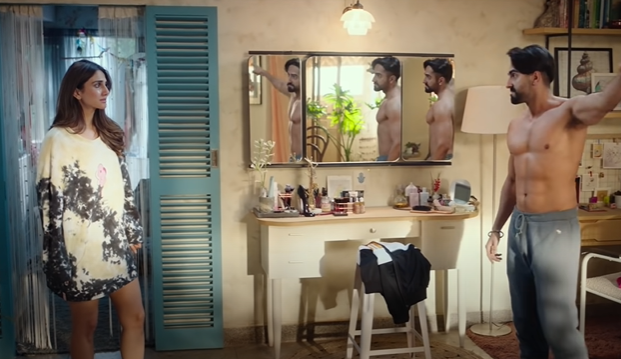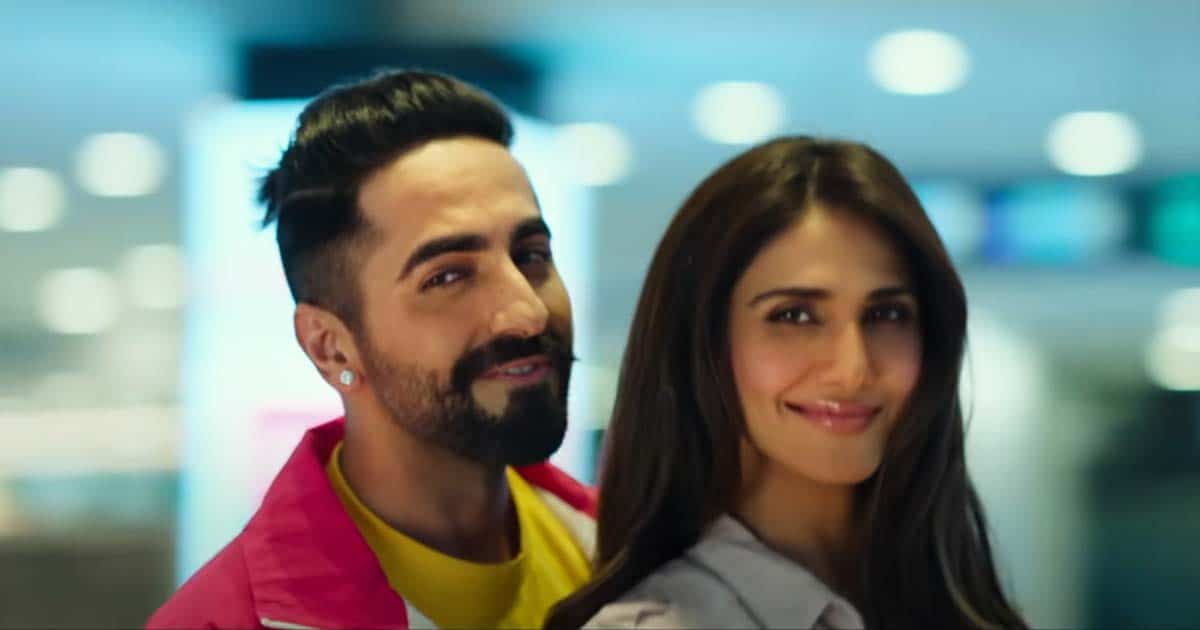Trigger warning: Mention of transphobia
Author’s Note: I have written this article as a proud ally of the LGBTQIA+ community. I, in no way, claim to have experienced even half of what they undergo in life and neither do I intend to overstep. After watching this movie, I could not overlook its problematic nature. Therefore, I wrote this article as an audience member and ally, wishing for more fair representation in the future.
One of the most popular and spoken about Bollywood movies in recent times has been Chandigarh Kare Aashiqui, directed by Abhishek Kapoor. The film stars Vaani Kapoor and Ayushmann Khurrana in lead roles. Chandigarh Kare Aashiqui revolves around the love story of Maninder “Manu” Munjal, a bodybuilder, and Maanvi Brar, a Zumba instructor. The former is not initially aware that the latter is a transgender woman. When she tells him, he is appalled, and swears to destroy her life.
So far, the movie has received rave reviews. The cast and crew are being applauded for selecting such a sensitive subject and handling it with utmost respect. However, amidst all the hype, people seem to be overlooking its fundamental flaws. The first thing that Bollywood needs to stop doing is performative representation.
Hitesh Kewalya’s film Shubh Mangal Zyada Saavdhan (2020) was about homosexuality. Still, the pivotal roles were played by two straight males. Article 15 (2019) directed by Anubhav Sinha is about caste discrimination, particularly against the Dalits. Again, it had no Dalit person as part of it. Similarly, this movie is about a transgender woman, but a cisgender woman is playing the protagonist.
Abhishek Kapoor spoke about this and said “Why is it that everything is legitimised by an actor? Why can’t a trans person write the film? Why can’t a trans person direct the film? Films are not made by actors, they are made by filmmakers and writers. Eventually, there is a representation by an individual actor but I try to see above this because there is a story to be told. You have to reach out to people at large by taking the story to them and I thought this is the best way to take this story there.”.
They chuckle at the derogatory slurs and comments used by the characters. It seems as though the comedy is at the expense of transgender representation. The normalisation of such language and transphobic jokes makes people believe that it is okay to use them on a regular basis. No one, at any point in time, acknowledges or addresses the gravity of these words that are casually incorporated as local lingo, and the impact they have on her. Thus, in some ways, the film defeats its own purpose by perpetuating this behaviour instead of discouraging it
The irony is that the film does not have a transgender person in its crew either. It is not about legitimisation, but about resonance and veracity. This is a constant cycle that no one is willing to break. Instead of jumping on the bandwagon of commercial cinema’s mainstream appropriation for tokenism, Chandigarh Kare Aashiqui could have truly done justice to its plot by casting a transgender woman in the central role.
Also read: Ayushman Khurrana’s GQ India Cover: Thoughts From A Gender Fluid Person

According to the male lead of the film Ayushman Khurrana, the film’s target audience is transphobic people. He believes that they can be sensitised to such concepts predominantly through comedy/light-hearted cinema. While the intention is appreciable, Chandigarh Kare Aashiqui greatly misses the mark and instead, uses transphobia to incite laughter. The dialogues are written in a way that makes the audience laugh at Manu’s inability to accept that Maanvi is a transgender woman.
They chuckle at the derogatory slurs and comments used by the characters. It seems as though the comedy is at the expense of transgender representation. The normalisation of such language and transphobic jokes makes people believe that it is okay to use them on a regular basis. No one, at any point in time, acknowledges or addresses the gravity of these words that are casually incorporated as local lingo, and the impact they have on her. Thus, in some ways, the film defeats its own purpose by perpetuating this behaviour instead of discouraging it.
Transphobia is a very unfortunate reality in today’s world that adversely and violently affects the lives of trans individuals. We must remember that no matter how conservative a person’s upbringing might be, there can be no justification for intolerance and hatred. In Chandigarh Kare Aashiqui, when Manu goes to apologize to Maanvi after becoming cognizant of his atrocious behaviour, he says “Meri galti nahi hai oye, main government school mein padha hoon. Ye “trans” lavz na kabhi pehle suna nahi tha maine” (It’s not my fault. I’m from a government school. I had never even heard the word “trans” before).
Bollywood has a large fanbase, and consequently, a larger responsibility. With every ground-breaking script, new conversations start at home. This is why as a filmmaker and an artist, it is vital to be honest to the authenticity of a film’s theme. There are details knitted within every story that cannot be ignored. In a review of Chandigarh Kare Aashiqui published by The Quint, trans writer Satvik says, “It was just as I expected – transphobic content hiding under wokeism.”
There is no denying that lack of awareness regarding these topics is a huge problem in India. However, that does not give ground for the way he reacted and treated her after finding out. If he was not aware that this exists, his immediate response should have been to enlighten himself or have a conversation with her about it. The casual classist reference about the difference between students of government school and other schools is also unmissable.
If the attempt by the makers of Chandigarh Kare Aashiqui is indeed to bring out the genuine ignorance and culture shock that a cis-het man experiences when he encounters a trans woman, there are less derogatory, more refined ways to express it on screen. This kind of blatant justification of transphobia by placing reliance on one’s schooling and background only legitimises violence against trans individuals under the garb of ignorance.

The fate of all these characters contradict the intended message of Chandigarh Kare Aashiqui. Manu wins his weightlifting competition, and gets back together with Maanvi. No one has a real conversation about everything that transpired. Maanvi’s decision to stay with him seems to be literally epitomising “let bygones be bygones”. However, certain things cannot and should not be forgotten.
Additionally, despite the movie intending to focus on gender inclusivity and awareness, the focal point seems to be Manu’s despair and broken heart. There is little to no focus on Maanvi’s trajectory, life and experience which is something that should have been developed further. The humiliation she faces at the hand of Manu is brushed under the carpet without proper confrontation.
Bollywood has a large fanbase, and consequently, a larger responsibility. With every ground-breaking script, new conversations start at home. This is why as a filmmaker and an artist, it is vital to be honest to the authenticity of a film’s theme. There are details knitted within every story that cannot be ignored. In a review of Chandigarh Kare Aashiqui published by The Quint, trans writer Satvik says, “It was just as I expected – transphobic content hiding under wokeism.”
While Chandigarh Kare Aashiqui is certainly starting discussions and playing a role in normalising this subject, it has more limitations than strengths. Until the film industry continues to fuel “humour” that stems from narrow-minded remarks, and until bigoted characters do not get held accountable for their doings, many Chandigarh Kare Aashiqui’s will come and go, but nothing will change.
Also read: J.K. Rowling’s Exclusion From The Harry Potter Reunion: Justified Or Not?
Suditi is currently a second year student pursuing a degree in English. An aspiring writer, she hopes to always bring a unique and refreshing take on topics. Aside from writing, her interests include reading, acting and discovering underrated gems of world cinema. She may be found on Instagram
Featured Image Source: Koimoi





Hi,
I just recently stumbled onto this movie and immediately wanted to check the public response. Yours was one of the only articles I found that truly dived into the realities of modern, backhanded “representation”. It took away the glamor of bollywood and spoke critically on what it means to take a real stance against any social issue even when applied to race and religion, along with LGBTQ in modern media.
Your aticle was excellent and wonderfully written so do keep up the good work. I’m also a student so I wish you the best on your degree!